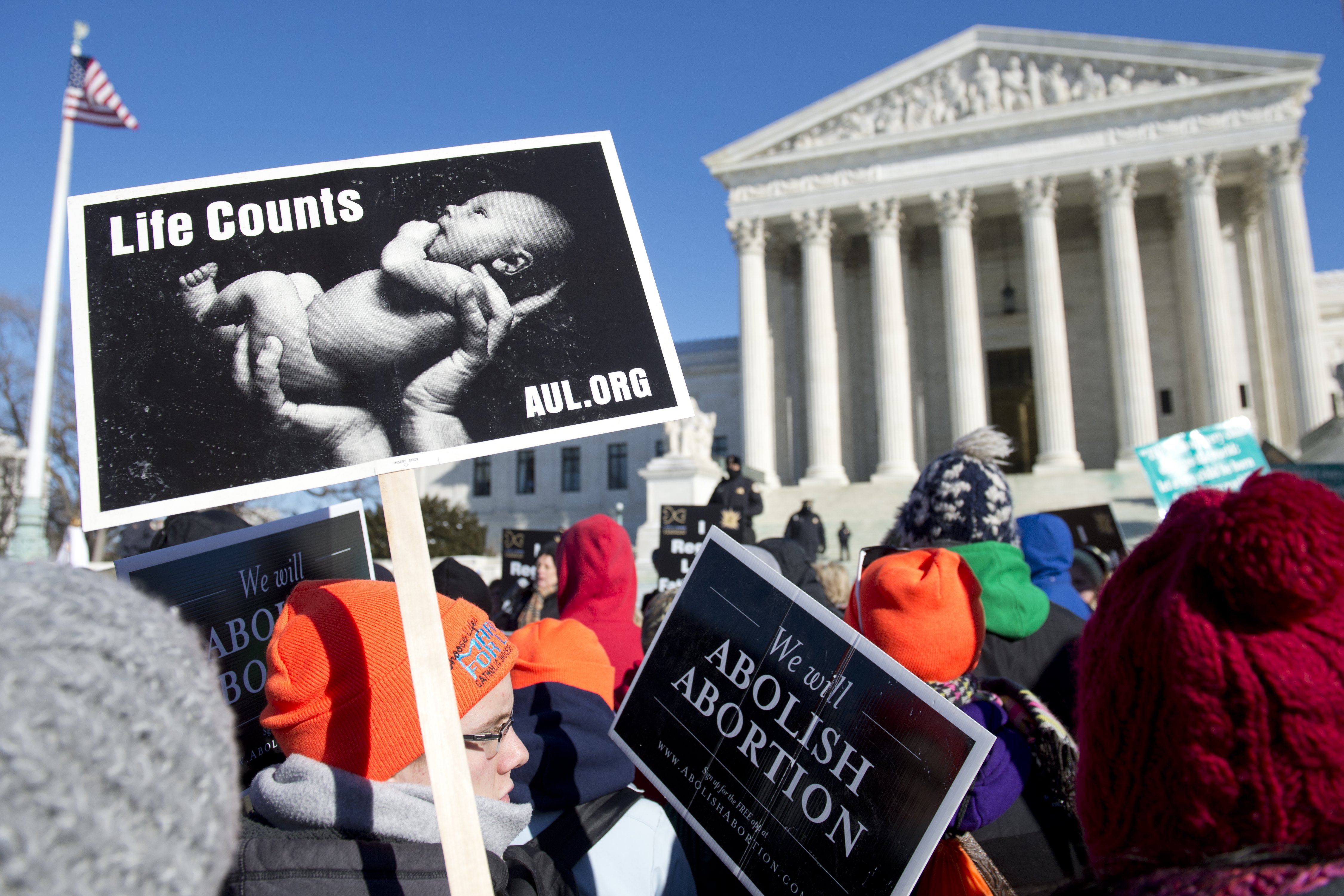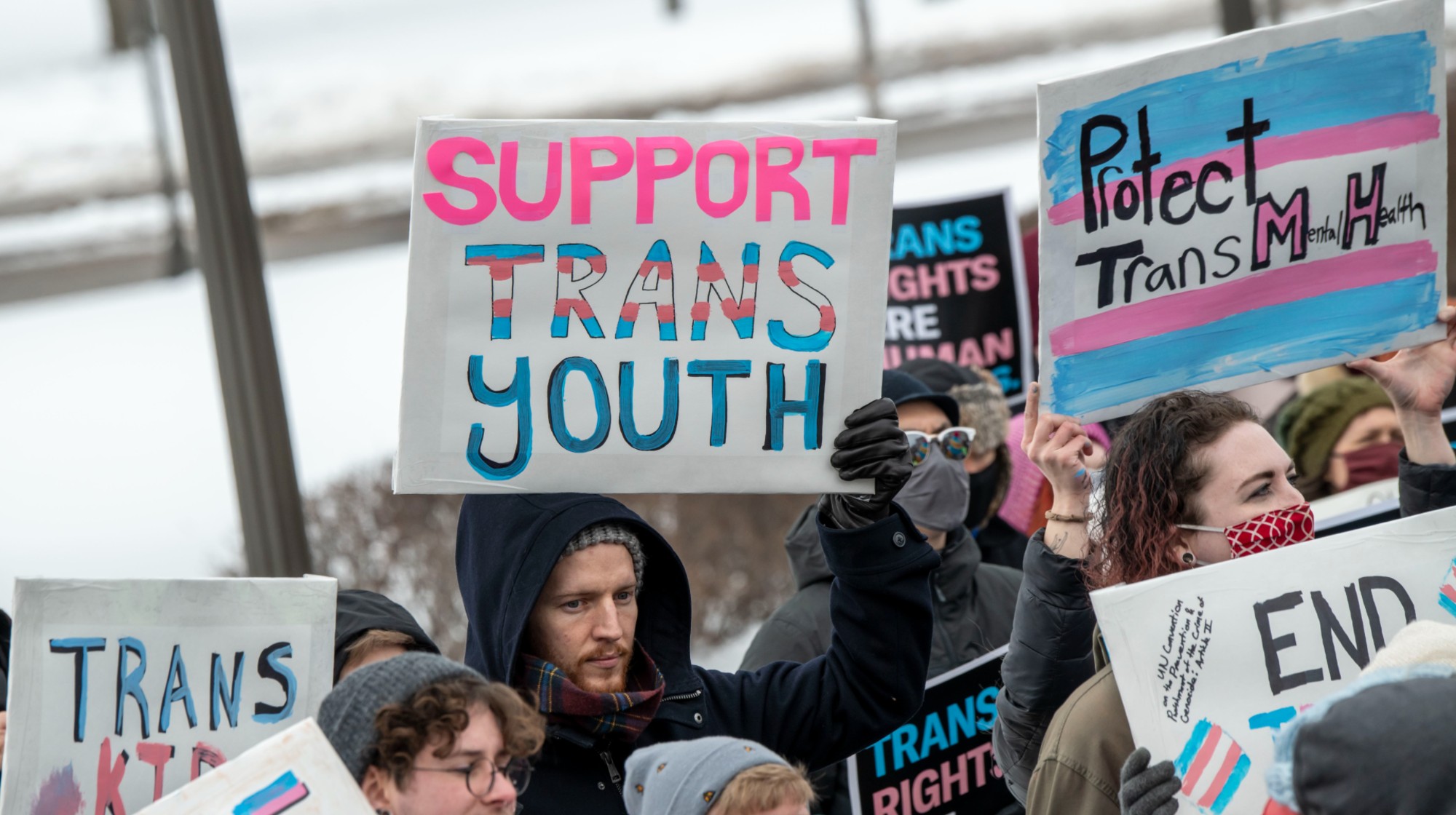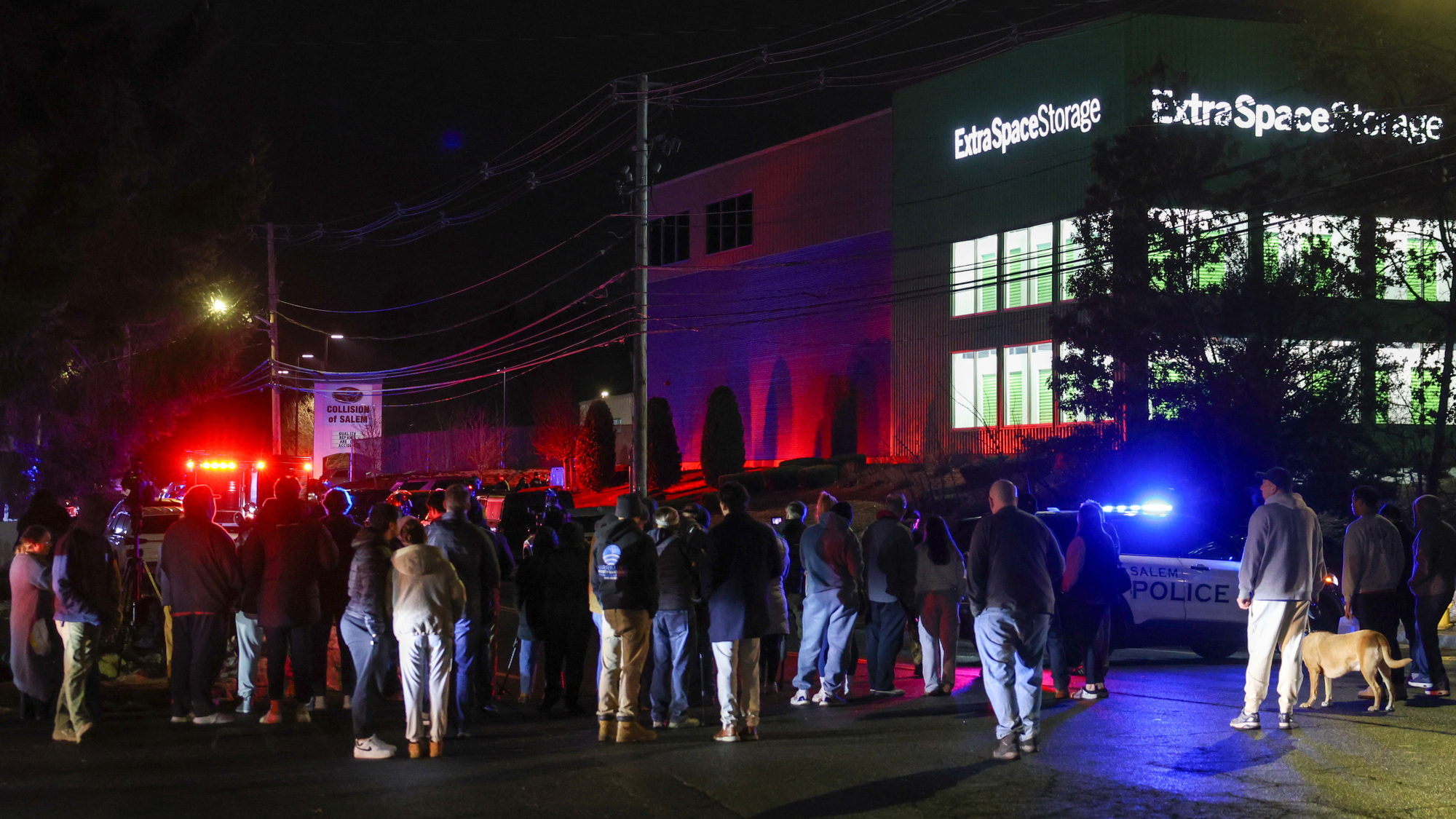Why liberals and conservatives keep talking past each other on abortion
If it sounds like they're speaking two different languages about the Planned Parenthood videos, it's because they basically are


Ambitious Republicans once ran away from the pro-life cause of defunding Planned Parenthood for fear they would be casualties in what Democrats called the "war on women." Now, these ambitious GOPers are quick to take on the women's health provider, with GOP presidential contenders practically competing to see who can defund Planned Parenthood first.
What has changed?
The answer is those videos showing Planned Parenthood officials talking casually about the sale or donation of body parts harvested from the remains of aborted fetuses. Even liberals acknowledge that Planned Parenthood supporters are on the defensive, rather than talking up the health benefits of fetal tissue research.
The Week
Escape your echo chamber. Get the facts behind the news, plus analysis from multiple perspectives.

Sign up for The Week's Free Newsletters
From our morning news briefing to a weekly Good News Newsletter, get the best of The Week delivered directly to your inbox.
From our morning news briefing to a weekly Good News Newsletter, get the best of The Week delivered directly to your inbox.
The videos, in edited or unedited form, remind people that in addition to doing a number of uncontroversial things, Planned Parenthood is the nation's largest abortion provider. The videos also remind people that abortion involves tearing apart a fetus, a human being in its earliest stages of development.
This is not a new wrinkle in the abortion debate. The right to choose has relied heavily on ambiguity about what is being chosen. We hear about "choice," "termination of pregnancy," "safe, legal, and rare," even "fetal tissue donation." Pro-choice politicians frequently avoid using even the word "abortion," much less describing what one actually entails. What is being aborted is not a baby or a child, but a blob of tissue, a mass of cells, or a "product of conception."
No wonder some have called abortion the right that dare not speak its name. At the 2012 Democratic National Convention, both President Barack Obama and Vice President Joe Biden defended the legality of abortion without using the word. In his 2008 acceptance speech, Obama only explicitly mentioned abortion as something "[w]e may disagree on."
Advancements in ultrasound technology have likely increased moral qualms about abortion. After all, generations of pro-life activists came to oppose abortion because of films like Silent Scream that showed the procedure taking place, in a degree of detail unseen even by some who had performed abortions.
A free daily email with the biggest news stories of the day – and the best features from TheWeek.com
One prominent convert was Bernard Nathanson, a former abortion provider and early pro-choice advocate who later recalled asking a colleague "doing 15 or maybe 20 abortions a day" to film his work. "I had done many," Nathanson explained, "but abortion is a blind procedure." His colleague complied, Nathanson wrote, "and when he looked at the tapes with me in an editing studio, he was so affected he never did another abortion."
There's a reason abortion opponents have in recent years focused on late-term abortions or specific procedures like partial-birth abortion while having more trouble persuading the public to oppose embryonic stem-cell research: The more the object of abortion looks like a baby, the more likely people are to oppose it being killed.
These facts have also occasionally prompted pro-lifers to overreach. There was public backlash against mandatory ultrasound legislation that was predicated on the idea that such information would prompt women to reject abortion. And many pro-life demonstrators use grisly photos of aborted fetuses in their protests, a tactic that has long divided abortion opponents.
In 2013, the National Catholic Register published a listicle giving eight reasons to avoid using such graphic images at the country's largest pro-life march. Abortion is a sensitive and unpleasant subject. Sometimes, letting people see the grim details moves them in a more anti-abortion direction. Other times, it makes them angry at whichever side of the debate made them confront it by bringing the issue up in the first place.
Market research done by abortion opponents in the 1990s didn't find that the intricacies of fetal development were a decisive factor in a woman's decision to abort. Paul Swope wrote about these findings in First Things at the time: "Descriptions of fetal development and even graphic abortion pictures can still be used to great effect with certain audiences, particularly among people already disposed to the pro-life message and as a means to activate pro-lifers." But they weren't necessarily effective at persuading women considering abortion.
In many cases, people know full well what an abortion does. (Stops a beating heart, as the old pro-life slogan goes.) They just can't get past the fact that asking a woman to carry an unwanted pregnancy to term is not a small ask.
Planned Parenthood deserves the scrutiny it is now receiving, just as the country deserves an abortion debate that is less shrouded in euphemism. This may be the first step toward a culture of life, but it won't finish the job.
W. James Antle III is the politics editor of the Washington Examiner, the former editor of The American Conservative, and author of Devouring Freedom: Can Big Government Ever Be Stopped?.
-
 Trump HHS moves to end care for trans youth
Trump HHS moves to end care for trans youthSpeed Read The administration is making sweeping proposals that would eliminate gender-affirming care for Americans under age 18
-
 Why does Trump want to reclassify marijuana?
Why does Trump want to reclassify marijuana?Today's Big Question Nearly two-thirds of Americans want legalization
-
 Sole suspect in Brown, MIT shootings found dead
Sole suspect in Brown, MIT shootings found deadSpeed Read The mass shooting suspect, a former Brown grad student, died of self-inflicted gunshot wounds
-
 Has Zohran Mamdani shown the Democrats how to win again?
Has Zohran Mamdani shown the Democrats how to win again?Today’s Big Question New York City mayoral election touted as victory for left-wing populists but moderate centrist wins elsewhere present more complex path for Democratic Party
-
 Millions turn out for anti-Trump ‘No Kings’ rallies
Millions turn out for anti-Trump ‘No Kings’ ralliesSpeed Read An estimated 7 million people participated, 2 million more than at the first ‘No Kings’ protest in June
-
 Ghislaine Maxwell: angling for a Trump pardon
Ghislaine Maxwell: angling for a Trump pardonTalking Point Convicted sex trafficker's testimony could shed new light on president's links to Jeffrey Epstein
-
 The last words and final moments of 40 presidents
The last words and final moments of 40 presidentsThe Explainer Some are eloquent quotes worthy of the holders of the highest office in the nation, and others... aren't
-
 The JFK files: the truth at last?
The JFK files: the truth at last?In The Spotlight More than 64,000 previously classified documents relating the 1963 assassination of John F. Kennedy have been released by the Trump administration
-
 'Seriously, not literally': how should the world take Donald Trump?
'Seriously, not literally': how should the world take Donald Trump?Today's big question White House rhetoric and reality look likely to become increasingly blurred
-
 Will Trump's 'madman' strategy pay off?
Will Trump's 'madman' strategy pay off?Today's Big Question Incoming US president likes to seem unpredictable but, this time round, world leaders could be wise to his playbook
-
 Democrats vs. Republicans: who are US billionaires backing?
Democrats vs. Republicans: who are US billionaires backing?The Explainer Younger tech titans join 'boys' club throwing money and support' behind President Trump, while older plutocrats quietly rebuke new administration
